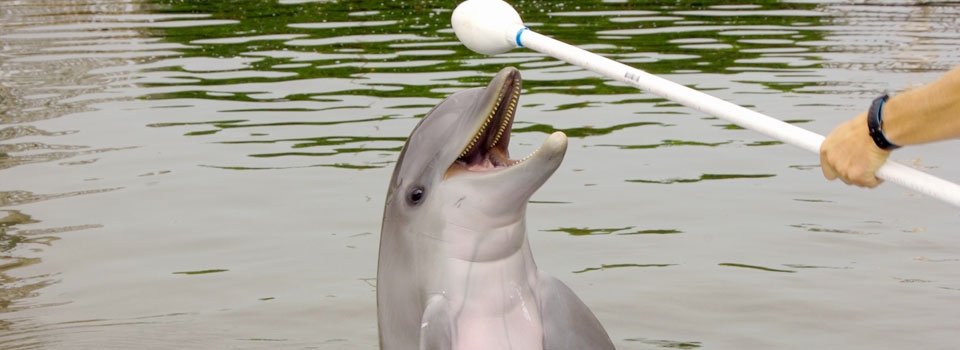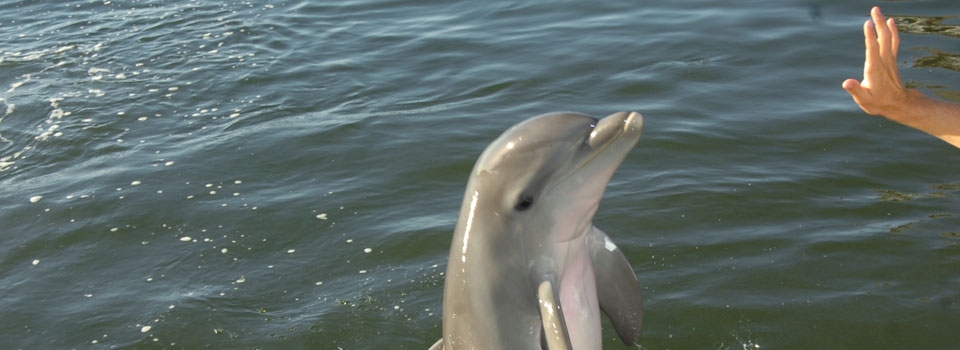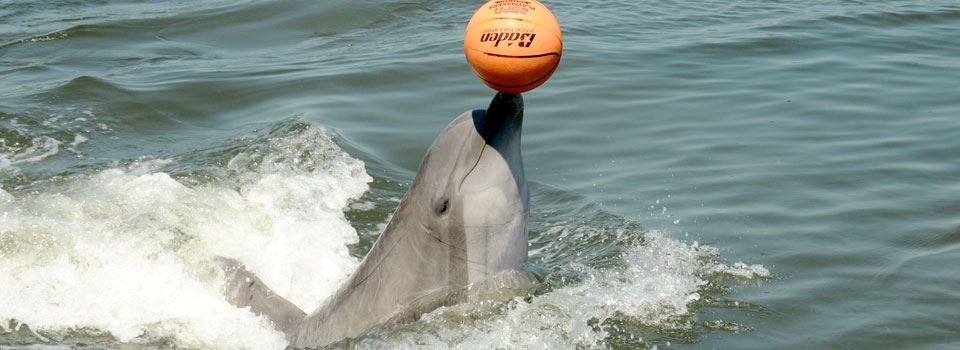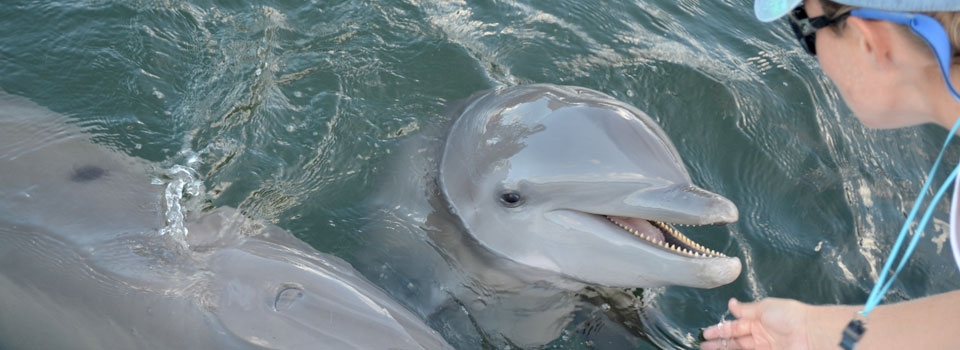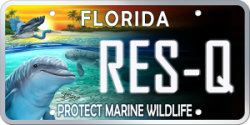Training Careers
Thank you for your interest in careers related to marine mammal training. If you are interested in marine mammals, there are many career paths you can choose to work with them or for them. Due to an overwhelming interest in training, we have created this guide to answer many of the most commonly asked questions about how to become a trainer. Of course the responsibilities of being a trainer and the requirements to become a trainer vary from facility to facility. We have focused our responses on training at Dolphin Research Center. Good Luck with your future training career!
- How should I prepare educationally for my training career?
- What other skills do I need to be a trainer?
- Should I volunteer or intern?
- Are there any programs to help me learn about training and dolphins?
- What are the average salary and benefits of a trainer?
- What is a typical day like being a dolphin trainer?
- What are the positive and negative aspects of your job?
- How long does it take before I get to work with the animals?
- Do I need to be a trainer to work with animals?
- What books or references would help me to find out more about training and other careers in the marine mammal field?
How should I prepare educationally for my training career?
It’s never too early to start preparing for your training career. While in middle and high school, you can gain valuable knowledge and experiences in the field of biology. You will need lots of math and science classes to gain a strong background for college. Many trainers pursue degrees in Biology, Marine Biology, Psychology, or Animal Behavior in college.
In 2012, Dolphin Research Center established the Dolphin Research Training Institute (DRCTI). For those looking to pursue a career in animal training, we off a hybrid program (online & onsite) called Dolphin Academy. Find out more about our program. Moorpark College in California focuses on exotic animal training in a two-year program. The school is extremely hands-on, and graduates have a great success rate of employment. Please bear in mind, however, that some marine mammal facilities require a four-year degree for employment.
The school you choose will depend on your interests. You must first decide the area in which you would like to major. Your library will have a book of colleges to help you determine the schools in the U.S. that offer your intended major. Look for schools that offer biology or animal behavior andpsychology majors. You can then look at the size, location and cost of the listed colleges to help you narrow-down your choices. We have a list of colleges and universities in Florida on our website (www.dolphins.org) that offer biology majors. Look under the section “Marine Education/Career Information/Schools and Universities”.
Once you find your top choices, you should try to visit the schools to see if they meet your needs. Talk to both faculty and students to learn about the positive and negative aspects of the school. If possible try to spend a night with a current student in your future major and attend at least one or two classes. Also, make sure the professors in your department will be supportive of your future career and will be able to assist you in achieving your goals. The school career centers also have helpful resources for students, so you may want to see what your potential schools have to offer their graduates.
What other skills do I need to be a trainer?
Every facility has a different philosophy and mission and therefore looks for different skills in their employees. At many dolphin facilities public speaking skills will be very important. Take classes that will advance your public speaking skills and knowledge of the animals and environment in which you will be working. Physical fitness is also important and because you will be working in an aquatic environment, swimming skills will be required. Many facilities required a swim test before you will be hired. Additionally, you should become SCUBA certified since some facilities only hire trainers if they are SCUBA certified.
Yes! It can be quite difficult to get your foot in the door of a marine mammal facility. The best way to gain valuable hands–on experience is to complete volunteer work or an internship at a facility that has animals (they don’t necessarily have to be dolphins). Many colleges require or strongly advise these programs because they enable you to learn while in the field. They also help you to determine whether or not you want to continue to pursue a training career. People often have a glorified image of marine mammal training and do not realize the hard work and dedication it takes to succeed in the field. DRC offers both volunteer and intern programs for individuals 18 and over. You can find information about our programs in the Volunteer/Intern area of this website. *Roughly one-quarter of DRC’s staff participated in our volunteer program before being hired as employees. Many facilities look highly upon the dedication and commitment necessary to be a volunteer*
Are there any programs to help me learn about training and dolphins?
Participation in programs like our week-long DolphinLab can be very helpful. DolphinLab introduces you to the overall operation of a marine mammal facility and educates you about topics such as training, husbandry, physiology, maternity, stranding, conservation, research, and more. This program also lets you get up close and personal with the dolphins through swims and dock time. DolphinLab exposes you to many different career opportunities in the marine mammal field and helps you to determine your area of interest. You can find more information about DolphinLab on our website. We hope to see you soon!
What are the average salary and benefits of a trainer?
The average salary of a trainer varies from one facility to another but is often in the $18,000-$20,000 range for an entry-level position. Most trainers have a second source of income to supplement their salary.
Higher salaries are often given to people with multiple years of experience; on average a trainer with 8-12 years of experience will make $25,000 - $40,000 a year. Most facilities usually offer medical plans to full-time staff members. Of course, the greatest benefit is the relationship you form with the animals!
What is a typical day like being a dolphin trainer?
Only dependable people can be successful trainers. Trainers are responsible for preparing meals, feeding, training, cleaning fish containers, and stimulating marine mammals both physically and mentally. The dolphins and trainers have training sessions each day, which are both mentally and physically stimulating. All trainers at DRC vary the dolphins with which they work. All of the dolphins receive at least three meals a day – usually a feeding in the morning, midday and afternoon. Trainers also make sure that all of our animals receive their vitamins and any necessary medications. The dolphins also practice medical behaviors with their trainers, and each dolphin has a physical twice a year. As a trainer you need to show a great deal of enthusiasm and energy to keep the dolphins excited and interested. Trainers may continue to work on behaviors that have already been taught to the dolphins or they may have the opportunity (after they have gained much experience) to train a dolphin a new behavior. Each day brings something new to a trainer’s schedule. Life is never dull when you are a dolphin trainer!
What are the positive and negative aspects of your job?
Of course there are drawbacks to working with animals. Being a trainer means you will have to maintain the animals’ living environment, which includes cleaning animals’ homes. This can be difficult and tiresome work. At many facilities you will also be outside a great deal during the hot summer months. You are working with dynamic animals, so you need to be flexible to their schedule, which may mean long, irregular hours. Trainers often work on holidays because the dolphins still need to be provided with care no matter what day it is. There are many positive aspects of being a trainer, which include the relationships you build with the individual animals. On a daily basis you get to work with animals who all have their own unique dolphinalities (personalities). You also have the chance to work closely with a team of other trainers and to support each other in your progress with the animals.
How long does it take before I get to work with the animals?
When you start at a facility, you will probably shadow (follow) senior trainers a great deal to become more familiar with the characteristics of each dolphin and to learn different training procedures. You may then start to feed and interact with a dolphin under the supervision of senior trainers. Eventually, the trainers will teach you to communicate with the dolphins through hand signals. As you grow and learn, you will gain more responsibilities with the animals. For example: training new behaviors, working on medical behaviors, or facilitating programs where the public interacts with the dolphins. Your growth rate will depend on past experiences, your comfort level and confidence.
Do I need to be a trainer to work with animals?
If your goal is to have direct contact with marine mammals on a daily basis, then you would most likely need to become a trainer. If your character and skills are more suited for other careers in the field, then there are many other ways you can work in a marine mammal environment. Here are a few examples:
Educator: As an Education member, you teach seminars and lead workshops on a variety of marine mammal topics. Facilities teach with live marine animals and sometimes bring them into the classroom for hands-on education. As a DRC educator, you focus on our week-long program calledDolphinLab. We also respond to requests for information from the public, visit schools and community organizations for outreach programs, and create exciting classroom activities.
Veterinarian: As a marine mammal veterinarian, you are responsible for the care and health of the animals. You will assist with medical procedures and check-ups. You will assess their needs and monitor their diets, vitamins and medicine. You may have a private practice for domestic animals and be affiliated with a facility that has dolphins or sea lions.
Researcher: As a researcher you will conduct a variety of studies often relating to dolphin intelligence, communication and physiology. You may conduct these studies with dolphins in human care or in the wild depending on your research question. Your work is typically supported by grant money that you will have to solicit in competition with other researchers. You are often responsible for publishing your results. If you would like to conduct your own research, a doctorate degree is necessary to succeed in this field. If you would like to assist other researchers, an undergraduate degree is required.
Husbandry Expert: As a husbandry expert your job is to supervise the preparation of the animals’ food and vitamins, and to order the food supply. This job requires a great deal of physical work, because it involves the maintenance of the fish supply and the sanitation of the marine mammal kitchen. This area needs to be clean enough so you could eat off the floor! You need to pay attention to detail to make sure your fish supply is of the highest quality. You can take pride in the fact that you are directly responsible for maintaining a healthy diet for the animals.
We have listed a few of the many career options that are available at a marine mammal facility. Look for opportunities in management, media, marketing, accounting, human resources, program development, computer programming, ground and tank maintenance, customer service, photographers, videographers, dolphin assisted therapy, medical, and much more.
What books or references would help me to find out more about training and other careers in the marine mammal field?
“Careers in Marine Biology”, Jay Hemdal (freshwater and Marine Aquarium, Vol 10, Feb. 1987, pg. 66-67).
“Don’t Shoot the Dog”, Karen Pryor (Bantam Books, 1999).
“I’ll do Anything to Work with Whales or Dolphins!”, Valerie Chase (Current, 1992, 11 (1): 31-33).
“Training and Careers in Marine Science: An Information Packet”
Available for a small fee from:
International Oceanographic Foundation
4600 Rickenbacker Causeway
Miami , FL 33149

